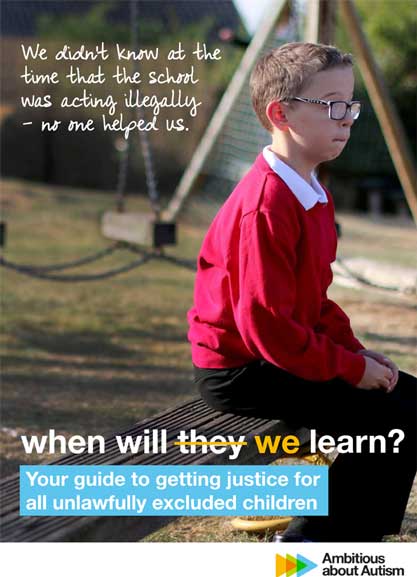18 September 2017
The Department of Education’s latest figures indicate 9,000 of these exclusions were legal but the charity have extrapolated from the data that as many as 26,000 children were denied the legal right of an alternative education.
“We believe children being excluded legally are being excluded as a result of their needs not being met, much like illegal exclusions,” a spokesperson for the charity said.
Disobedience or distress?
“Exclusions must happen on the basis of disciplinary reasons and must be lawful, rational, reasonable, fair and proportionate. Autism, of course, complicates this a great deal, because what might look like disobedience or misbehavior in a non-autistic child could, for a child with autism, be confusion, distress, sensory overload or misunderstanding.”
“A school should not exclude a child for this. This is why children and young people with autism need the right support so they can ensure their needs are met.”
To address the injustice, Ambitious About Autism have published a new guide to support parents to challenge exclusions.
“Illegal exclusions from school are a very serious issue, and one that disproportionally effects some children – including those with special educational needs,” said Anne Longfield OBE, Children’s Commissioner for England.
Read the original articleShare This Post:










Leave a Reply